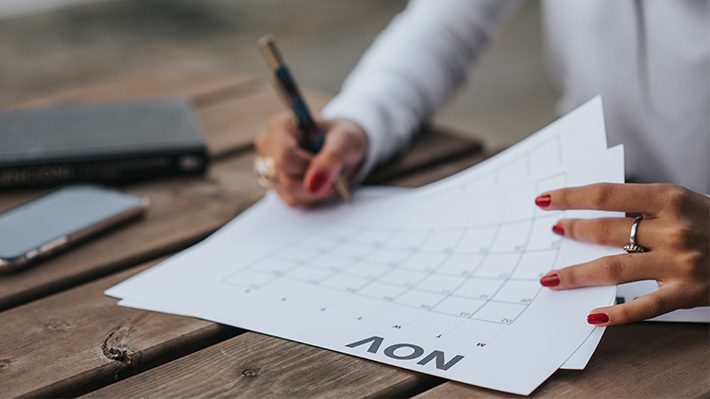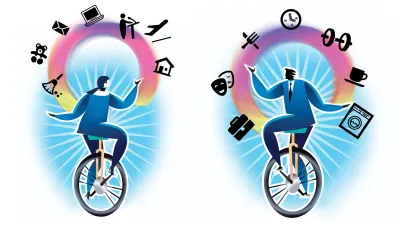
Want to Get More Done? Put Your Plans in Writing
Using a smartphone calendar, you might be able to accomplish your tasks or avoid missing major deadlines. But are you really making the most effective plan? Does the calendar app you’ve chosen to use allow you to see the whole picture of what you plan to do?
New research by Yanliu Huang, PhD, associate professor of marketing, digs into the overall efficacy of using a digital calendar compared with the analog, pencil-and-paper version. Along with LeBow alumnus Zhen Yang, PhD ’19, of California State University Fullerton, and Vicki G. Morwitz, PhD, of Columbia Business School, Huang published “How Using a Paper Versus Mobile Calendar Influences Everyday Planning and Plan Fulfillment” in the Journal of Consumer Psychology in April 2022.
In comparing paper calendars versus digital ones, Huang and her co-authors assessed individual plans according to criteria such as flexibility, level of detail, completeness and how realistic they are. Participants rated their own plans according to these criteria; separate evaluations were also done by research assistants supporting the project who were unaware of the hypotheses.
“We expected that plans created on paper, versus mobile, calendars will be more likely to be executed,” said Huang and her co-authors, and they found that a paper calendar is better for gaining a fuller, more holistic view of your planned activities.
Huang, whose research in consumer behavior often looks at the introduction of new technologies and how they impact individual feelings and perceptions, noted that previous studies in consumer behavior indicated that people are more likely to execute a high-quality plan rather than a low-quality one.
“We wanted to measure whether the calendar allows the user to see the whole picture of what they plan to do,” she said. “For example, can they prioritize what they plan to do and make a more efficient arrangement?”
Huang and her co-authors undertook a three-part study to weigh the paper-versus-digital question:
- Undergraduate students, taking part for academic credit, added both a study session and a leisure activity to their schedules and were surveyed on whether they’d completed those tasks
- Individuals who replied to a survey indicating that they planned to do a home-improvement project were tasked with plotting out steps to complete the project. Their plans were assessed by research assistants on the project, and the individuals’ responses about whether they’d completed the project were weighed against the assessments of the plans’ quality.
- Recruited participants were assigned to complete a “self-created” activity, like cooking or gardening, and then submitting a photo of their completed task to show they’d done it.
Across all three studies, an equal number of individuals were randomly assigned either paper or digital calendars, and those using paper calendars reported higher rates of successful task completion.
Huang and her co-authors noted the effect of gaining a “big-picture” view through making plans on a paper calendar, which gave participants a more comprehensive picture of everything they’d planned to do and how these new tasks connected or overlapped with them.
Huang, who previously looked at digital-versus-analog preferences in research on the making and execution of shopping lists, is branching out into other areas in her upcoming research, but still with technology as an underlying focus: evaluating online dating habits when using a mobile phone app compared with a website, for example, and studying how people perceive food items if they’ve been prepared by a person or a robot.



